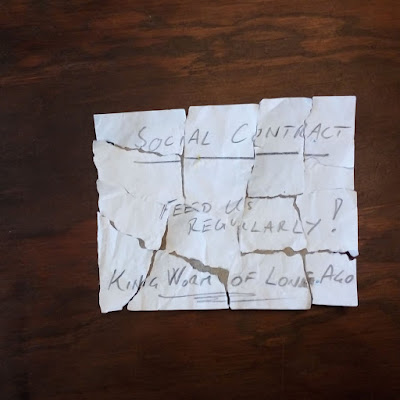Edward Bernays worked for some time as an advisor to the president of the united states, and had thereby the opportunity to see the workings of government from the inside. What he discovered was that government works pretty much like any other corporation. But instead of products, government produces policies.
Furthermore, the figureheads of government are rarely the ones pulling the strings. Politicians are swayed by their advisors and are mostly made to promote whatever these advisors suggest. The real powers that move the world are people that hardly anyone know. Edward Bernays knew this for a fact because he was one of these shadowy figures himself, and he described this in detail in his book.
I have myself been close enough to the heart of the system in Norway to know that he's right. My family owns a publishing company, and we always keep close ties to the minister of culture and the minister of education. A major part of our business is focused on shadow governance.
An interesting aspect of this is the constancy of policy that this arrangement brings. There was a radical change in the structure of the Norwegian government some fifteen years ago, and everyone expected this to lead to radical changes. However, much to our family's surprise and relief, not a single thing changed as far as our business was concerned. The new set of politicians were as easy to control as the old set.
Another thing to note, which Edward Bernays highlights in his book, is the looseness of association that the shadow government has. One branch doesn't necessarily know the other branches. My family doesn't constantly interact with other families. We are focused on our business, and other families are focused on their businesses. However, there is nevertheless interaction.
There's an awareness within the shadow government of what's good for the oligarchy and what isn't, and the various branches of the shadow government will act in unison if provoked. Not because it's so well connected, but because everyone recognizes a threat when they see one.
There is in this sense a conspiracy of convenience that keeps the structure together. There's something to be had for everyone by doing things a certain way. Politicians get various perks and kickbacks by promoting what the oligarchs suggest they promote. The dynamics of this is kept within a relatively small circle of individuals and families.
The ones footing the bills for all of this are regular people. They have nothing to offer except their votes, and those votes don't make any difference regardless of who they vote for. Their only function is to pick among a pre-selected group of corruptible individuals. Voters can change the specific layout of government, but they cannot change the way it's organized.
 |
| The social contract |
No comments:
Post a Comment